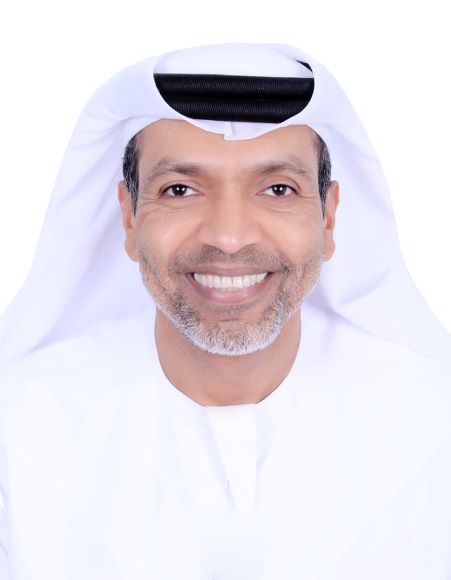MongoDB targets ambitious growth in the META region in the next 5 years
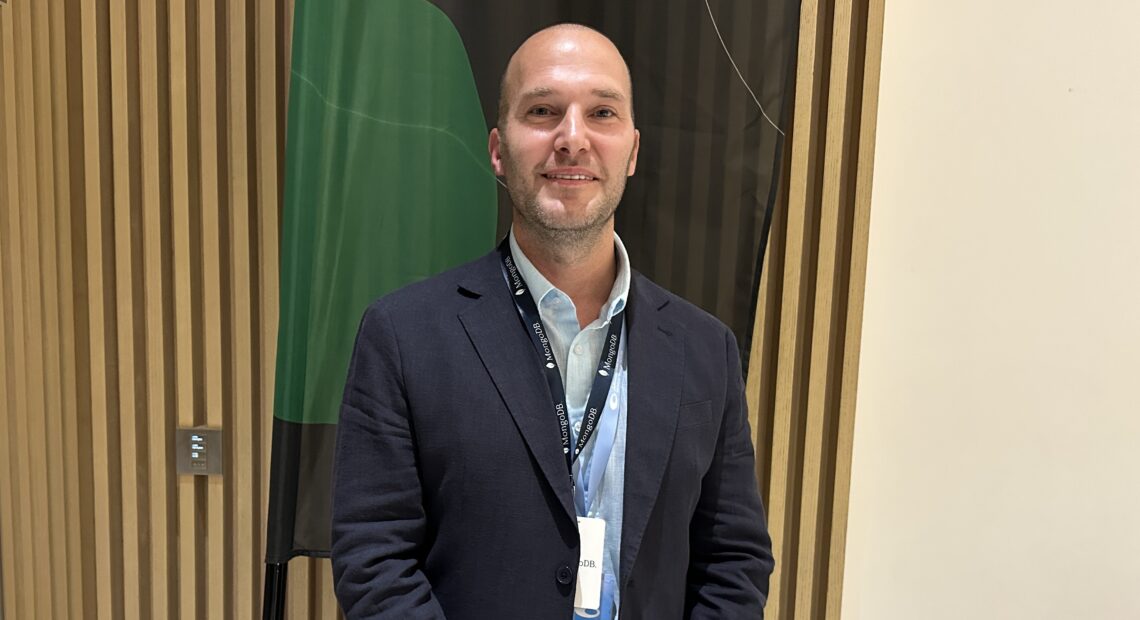
With regional hubs in the pipeline
MongoDB, the New York City-based multipurpose developer data solutions provider, hosted ‘MongoDB Day Dubai’, the company’s inaugural Middle East event, at the Museum of the Future in Dubai City on February 18, 2025.
The day-long event by the Nasdaq-listed company featured live demonstrations of the latest MongoDB products and features transforming regional businesses. Attendees also heard firsthand from customers using MongoDB to drive innovation and achieve results.
Delegates could also discover new AI-driven opportunities that give developers and organisations a competitive edge while learning how MongoDB is evolving and innovating in the Middle East, Turkey, and Africa (META) region.
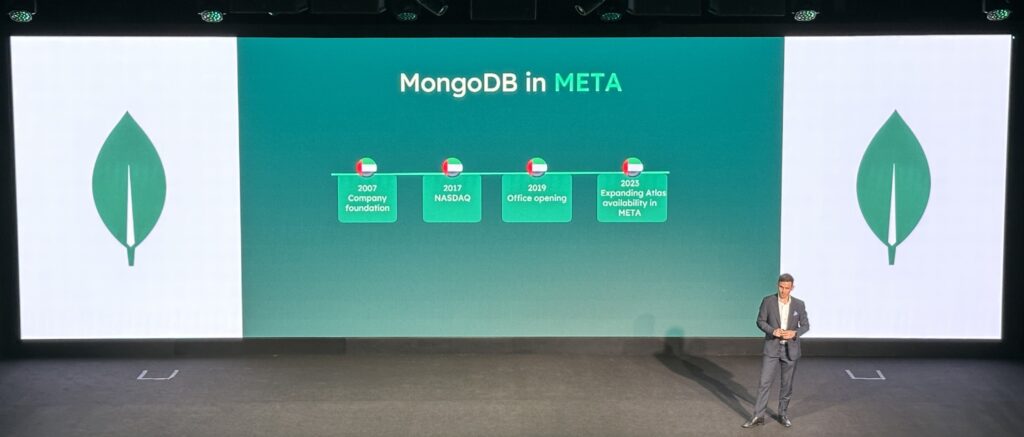
MongoDB’s key offerings include MongoDB Atlas, a fully managed cloud database service representing a substantial portion of its revenue. As of January 2024, MongoDB employs over 5,000 people, serves a global customer base, and empowers developers to build and scale applications efficiently.
In an exclusive interview with Middle East News 247 on the sidelines of MongoDB Day Dubai, Anders Irlander Fabry, MongoDB’s Regional Director for META, highlighted the company’s ambitious plans for this region.
He also discussed the unique opportunities and challenges the region presents. Fabry also shared his thoughts on how the META region is evolving in the tech world, particularly in AI and data security, and the importance of education and innovation for the future.
Excerpts from the interview. Answers edited for brevity and clarity:
What is the significance of the first-ever MongoDB Day Dubai event?
MongoDB Day Dubai is an exciting milestone for us. We have been building momentum since 2019, so this event represents a culmination of a lot of planning, logistics, and investment. We would not have done it without seeing a critical mass of interest and optimism about the region’s future.
We hope this event will be pivotal in helping us achieve our ambitions in the region.
Given the rapid pace of technology development, what makes META such an attractive region for MongoDB?
The Middle East, Turkey, and Africa are incredibly dynamic markets, and the pace of change here is faster than in many other regions. We have 74 countries in this region, each with unique challenges and opportunities.
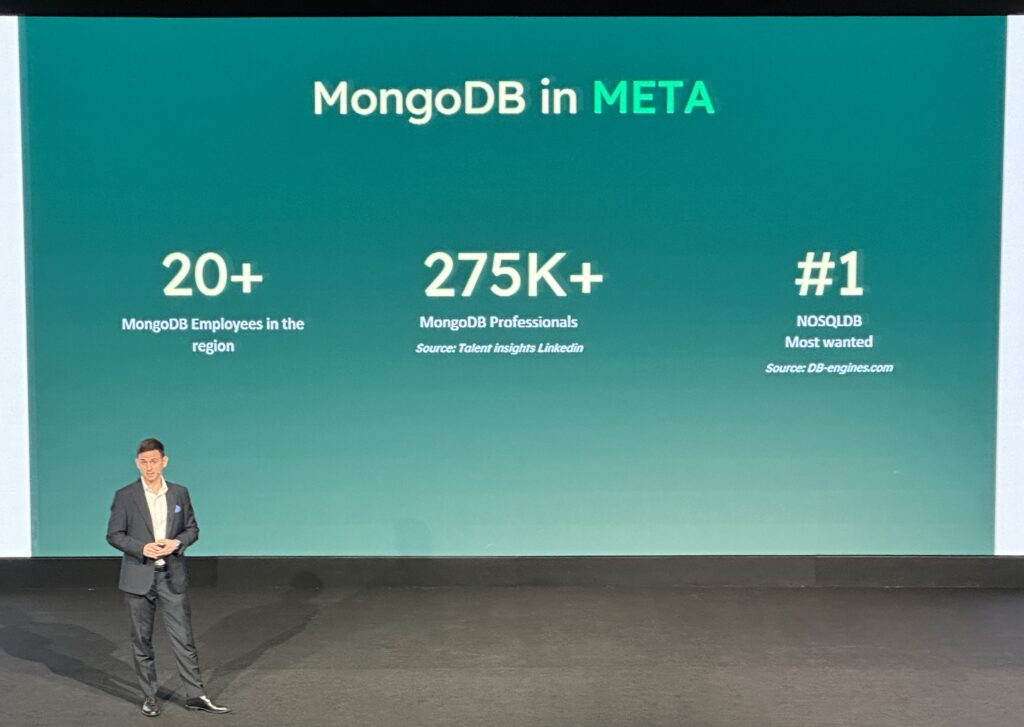
Governments and enterprises are increasingly open to embracing new technologies, especially compared to a decade ago. There is real momentum in places like Saudi Arabia, the UAE, and Qatar, where significant investments are being made. This region has become a focus point for enterprises, and we see the future of innovation happening right here.
What are MongoDB’s main differentiators from the competition?
MongoDB stands out in several ways. First, we offer a fundamentally different technology model than traditional relational databases. Our flexible data model is built for the modern age and is designed to scale with cloud computing and the Internet.
Second, we help companies innovate faster. Our platform is built with developers in mind, ensuring they can choose how to develop their applications.
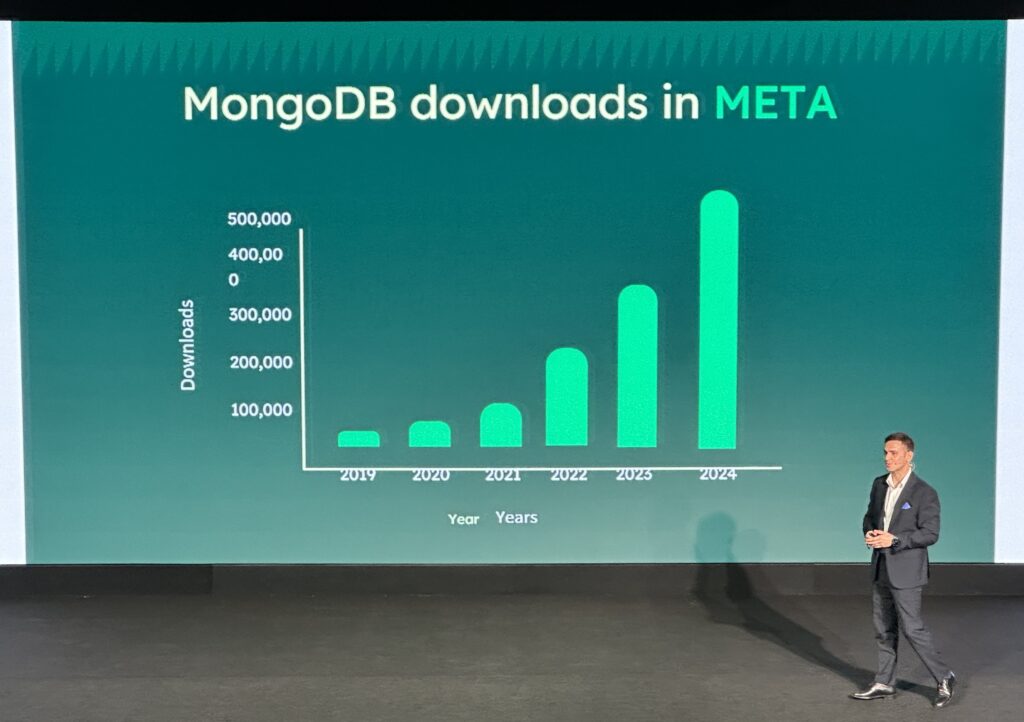
Third, we focus on offering customers complete freedom with hybrid cloud environments, allowing them to partner with major providers like Google, AWS, or Microsoft. This flexibility reduces cost and complexity.
Lastly, security is crucial for our customers, and by consolidating multiple tools into one platform, we can provide better data protection, which is essential for enterprise security.
Can you provide an overview of the META market?
The future is already here in the Middle East. While the global tech community discusses AI, we see these investments happening now. Around 88% of Saudi Arabia and UAE customers already invest in AI.
This includes upskilling talent and building next-generation data centres. MongoDB has seen a 20% increase in skilled professionals in the region, with over 23,000 people now proficient in our technology, which is incredibly exciting.
What challenges does MongoDB encounter in the region?
First and foremost, there is a skills gap. While the region’s leadership is forward-thinking and ambitious, there is still work to do to ensure that the people executing those visions have the necessary skills.
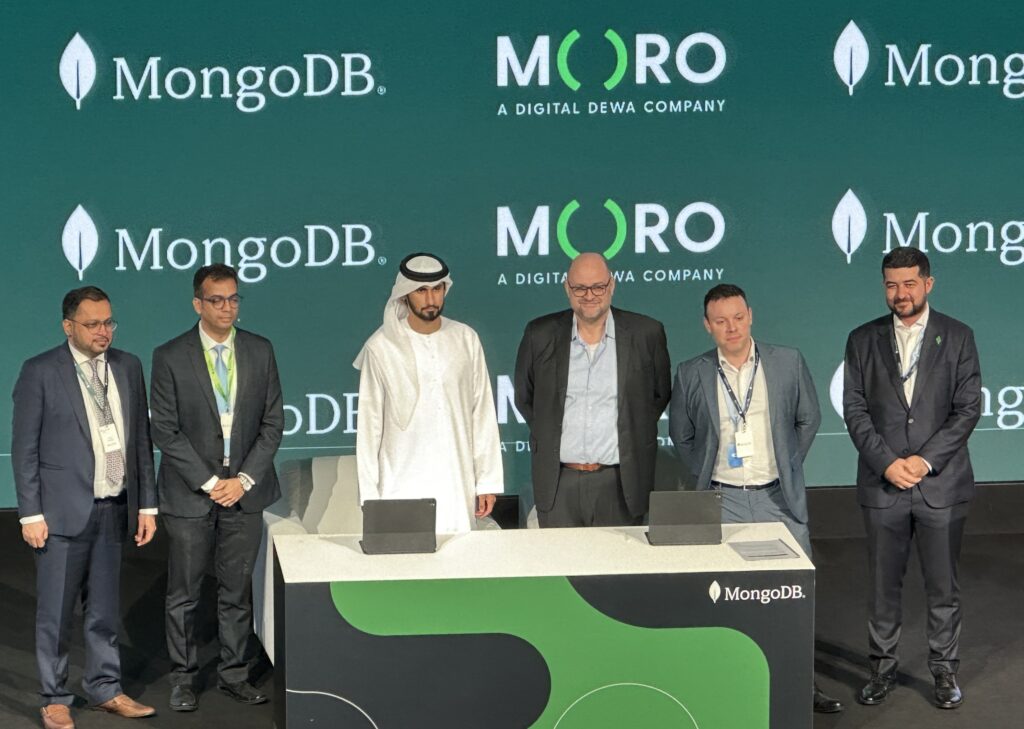
At MongoDB, we focus on educating and enabling the community, showing them the value that MongoDB and emerging technologies like AI can bring to their businesses. We are still an open-source technology, so part of our challenge is ensuring people understand its benefits and move to the enterprise level.
What are MongoDB’s growth plans in the META region over the next five years?
We are incredibly excited about the future. Our team has expanded rapidly; it is approximately 20 now, and MongoDB plans to double it this year. Over the next five years, we plan to localise resources and create dedicated regional hubs for Saudi Arabia, the UAE, Africa, the rest of the Middle East and Turkey.
This will help us meet the growing demand and ensure we have the local expertise to support our customers. We are also aiming to create a more substantial presence in each market.
How crucial is the META region to MongoDB in terms of global revenue?
The META region is critical. While we are still a tiny player compared to giants in the database market, we are growing at double the industry average. The database market is set to grow from $100 billion to $150 billion in the next five years, and we are positioned to capture a significant share of that growth.
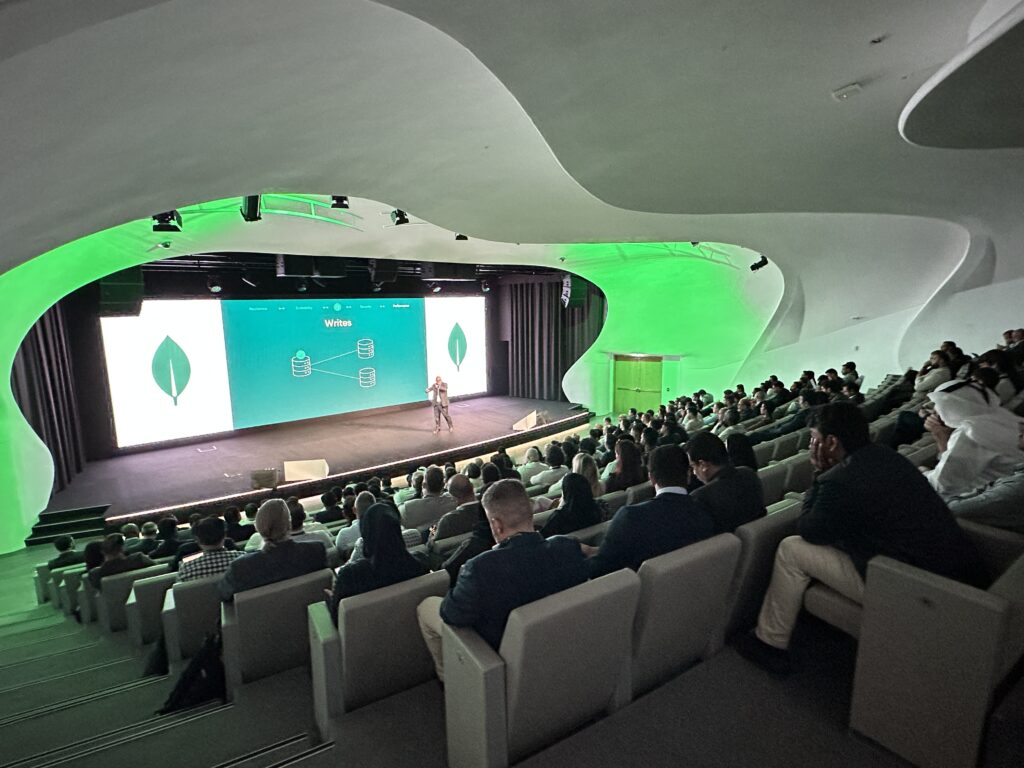
We have only reached 0.9% of the market regarding regional penetration, so there is a massive potential for expansion here.
Data sovereignty is a major concern in the ME region. How does MongoDB address this challenge?
We comply with all the mainstream security standards, such as ISO and HIPAA. However, we also see more region-specific regulations, particularly in countries like Saudi Arabia and the UAE.
Our dedicated team monitors these evolving standards, ensuring we meet our customers’ highest security requirements. This is especially important for the government, financial services, and telecom sectors, where data security and privacy are top priorities.
Our unique approach to consolidating multiple tools into one platform provides better data protection, reassuring our customers about their data security.
Can you explain MongoDB’s approach to helping customers transition from legacy relational databases to more modern technology?
This is a significant challenge for many customers, as moving from legacy systems involves substantial risks, mainly when rewriting code. In this regard, MongoDB has developed the Relational Migrator solution, which significantly reduces the effort and risk of moving to a modern data architecture.
In addition to data migration, Relational Migrator efficiently models schemas in MongoDB, updates application code and even converts existing code with AI.
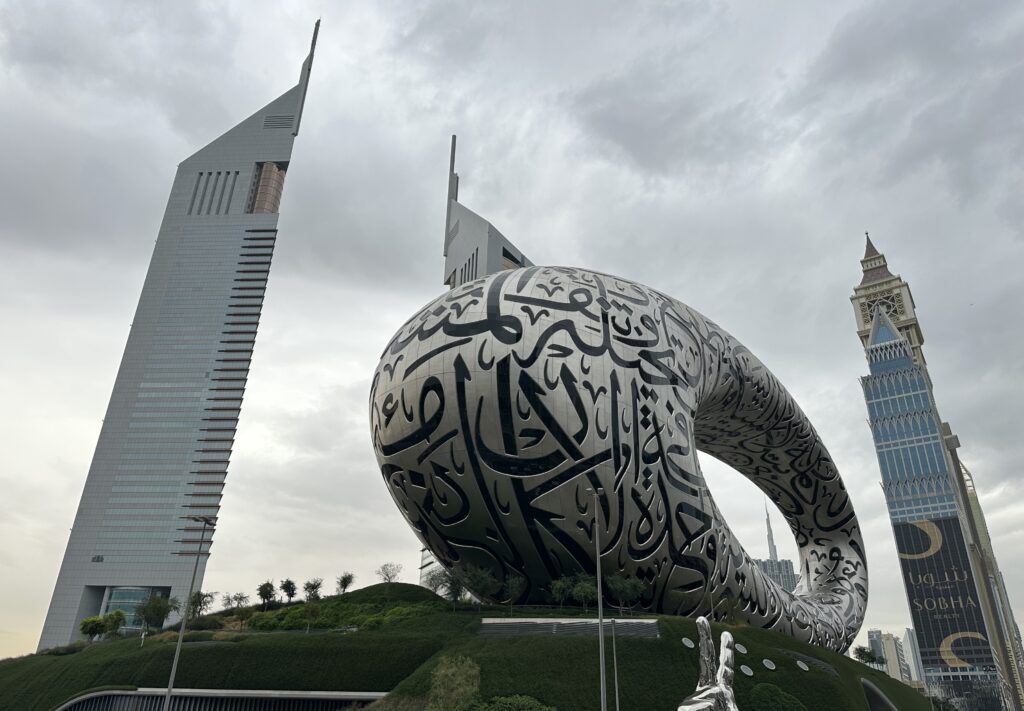
Using AI, we can simulate the migration of legacy code, ensuring that the new code replicates the old while improving it where possible. This accelerates the transition and reduces the risk of downtime, making it easier for businesses to embrace new technology confidently.
Our commitment to the region’s knowledge transfer and talent development is unwavering. We are actively contributing to the growth of the tech community in the region, inspiring hope and optimism about the future of technology in the Middle East, Turkey, and Africa.
We are deeply committed to supporting the region’s future talent. MongoDB University is a great initiative, and we are working to partner with universities in the area to help young people develop the skills they need for the future.
We also run community-driven events and actively participate in programmes like the Million Arab Coders initiative. The future of technology in this region lies with the youth, and we want to inspire them by ensuring they have access to the resources and training necessary to succeed.
Hero image: Anders Irlander Fabry, Regional Director for Middle East, Turkey, and Africa at MongoDB. Credit: Arnold Pinto
Last Updated on 1 month by Arnold Pinto


